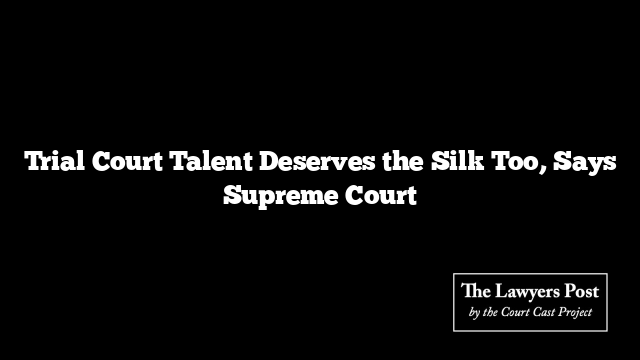In a strong push to democratize recognition in the legal profession, the Supreme Court has declared that the designation of Senior Advocates should not be a gated club reserved for practitioners in the Supreme Court and High Courts. Those navigating the trenches of trial courts and specialized tribunals, the Court said, are no less deserving of the coveted silk.
A bench comprising Justices Abhay S Oka, Ujjal Bhuyan, and SVN Bhatti delivered a sharp message: practicing in district courts doesn’t make an advocate a second-tier lawyer. “Extraordinary skills don’t reside only in high towers,” the Court noted, reminding the legal community that courtroom brilliance isn’t exclusive to appellate benches.
In a move with wide-ranging implications, the bench called on High Courts to develop mechanisms to identify and elevate legal talent from the grassroots. The views of Principal District Judges and tribunal heads should form part of the selection process, it said, ensuring that diversity isn’t a slogan but a structured outcome.
Senior designation, the Court clarified, should reward merit across the board — including mastery in specialized fields such as arbitration, tax, insolvency, and intellectual property law. “If this recognition is confined to just the top courts,” the judgment warned, “it risks falling foul of Article 14 — the constitutional guarantee of equality.”
The new guidelines aim to reset an entrenched perception: that courtroom excellence wears only black robes in metropolitan courtrooms. By underlining the capabilities of those in trial and district courts — especially first-generation lawyers — the Court is opening the door for more equitable representation in India’s legal elite.
Drafting brilliance, razor-sharp cross-examinations, and deep statutory knowledge are not the monopoly of a few, the Court observed. And it’s time the system caught up.





